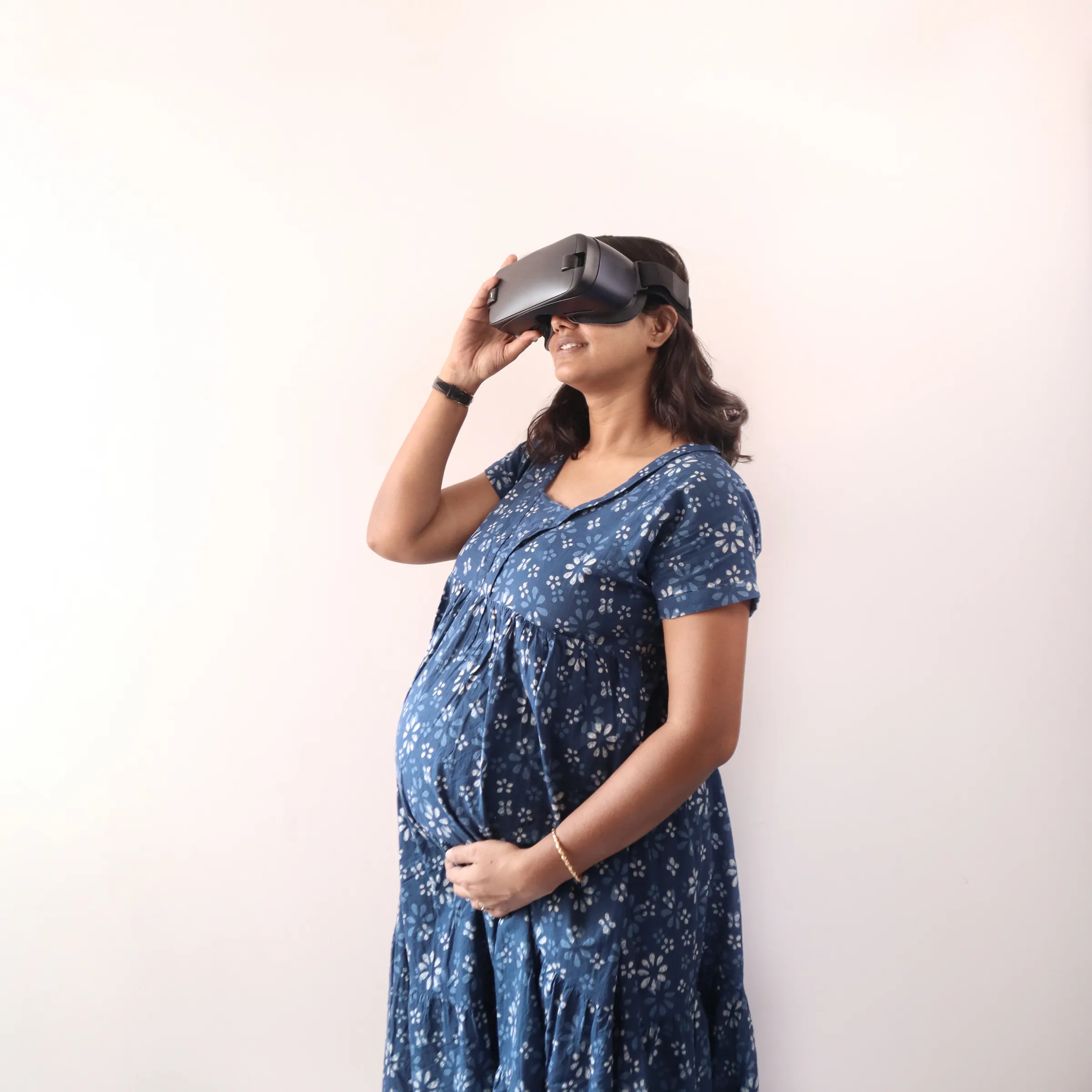How Virtual Reality is Reducing Maternal Mortality

Virtual reality (VR) is recognized as a computer-based technology that simulates the real world. Using VR, a person can interact with an artificial environment that resembles reality. Currently, VR is often used to facilitate pregnancy for pregnant women by reducing their anxiety levels and training them to effectively manage their pain during labor. A pregnant woman’s blood pressure and heartbeat increase during childbirth, which may intensify if the mother is experiencing pain and anxiety. As a result, the amount of uterine blood flow can be reduced. Additionally, stress can increase pain during delivery and the possibility of depression after childbirth. Both pharmacological and non-pharmacological methods are used to reduce the pain and anxiety of labor. As a non-pharmacological method, VR technology can provide a simulated environment and distract patients’ concentration on pain signals, lessening the pain during labor and childbirth. VR is also becoming an effective training tool for expectant mothers, midwives, healthcare workers, and primary care physicians.
Last year, BehaVR, a digital therapeutics company that aims to liberate people from stress through the power of virtual reality, announced a partnership with Save Moms — a national maternal mortality and morbidity prevention campaign directed by Reach, a 501(c)(3) global social impact organization. BehaVR is providing NurtureVR a first-of-its-kind virtual reality program for pregnant moms who belong to low-income and otherwise marginalized families. In addition, a portion of the proceeds will support Reach’s efforts to provide maternal healthcare resources and education to women at a higher risk for complications during and after pregnancy. According to new research from Stanford University, this collaboration comes at a time in which pregnant women are showing depressive symptoms at a rate twice as high as they were before the pandemic. Studies have long drawn a connection between perinatal mood and anxiety disorders and their tendency to result in shortened gestation periods and preterm delivery — two birthing factors that contribute to the high rates of maternal and infant mortality and morbidity in the United States. This disturbing trend has a disproportionately negative impact on minority populations: six times higher for Black and African American women and four times higher for Indigenous and Native American women. By promoting self-directed care, BehaVR is unlocking access to tools that women need to help ensure a safe and stress-free delivery, as well as a healthy postpartum experience.
Since 2017, midwifery students have delivered babies as a part of their exam at Australia's University of Newcastle. However, they do so in virtual reality. This university started the VR project that simulates a real-world delivery room in May 2017. The program runs on PC, iOS, and Android, putting midwifery students under the pressure of a “life-or-death situation” in the “safe, repeatable environment of VR,” according to the co-project leader and lecturer Jessica Williams. Incorporating VR into midwifery training is proving to be helpful in improving maternal and infant mortality rates and other consequences caused by medical errors. Last year, the United Nations Population Fund (UNFPA) finalized the development of a training program that will use virtual reality to build on the competencies of healthcare workers and complement the preexisting globally recognized Emergency Obstetric and Newborn Care (EmONC) program. This is the first project that will implement VR in East Timor and potentially in the Asia-Pacific region in March 2022. According to UNFPA East Timor Country Representative Ronny Lindstrom, the virtual reality program will include modules that will contain EmONC skills and procedures to save the lives of mothers and babies using virtual reality goggles. These goggles will enhance the user experience of simulating and visualizing real medical situations, create a digitally mediated learning environment, and improve learning outcomes. The virtual reality innovation will also align with government priorities for maternal health. For example, the East Timor Strategic Development Plan for 2011-2030 emphasizes emergency obstetric care through recognition, early detection, and management of obstetric complications in the community and referral levels.
VR is also being leveraged to train primary care physicians. In November 2021, Immersive Health Group (IHG) entered a five-year software and services contract with Boston Medical Center (BMC) to develop and implement VR experiences for primary care physicians. These VR interactions would enable physicians to practice their decision-making and problem-solving skills to respond to maternal health emergencies in rural and underprivileged settings. BMC, which is the most extensive safety-net health system in New England, conducts more than one million patient visits each year, with over half of them coming from marginalized populations. It is one of the few programs that secured financial support from the federal government’s Department of Health Resources and Services Administration’s (HRSA’s) Primary Care Training Enhancement program.
VR technology has different applications in pregnancy, from reducing the anxiety and pain of pregnant mothers to providing valuable training for various healthcare workers to navigate maternal health emergencies and other pregnancy-related complications. VR technology is a promising resource for preventing and reducing maternal mortality in the future. However, it is essential to consider relevant guidelines when implementing this technology to realize its full potential.
Sources:
https://bmcpregnancychildbirth.biomedcentral.com/articles/10.1186/s12884-021-03725-5
https://www.businesswire.com/news/home/20210603005223/en/BehaVR-Partners-With-Reach%E2%80%99s-National-%E2%80%9CSave-Moms%E2%80%9D-Campaign-to-Improve-Maternal-Health-in-Vulnerable-Populations
http://cnet.com/tech/mobile/vr-is-now-helping-to-teach-midwives-to-deliver-babies/
https://timor-leste.unfpa.org/en/news/unfpa-develop-novel-innovation-help-reduce-maternal-deaths-timor-leste-using-virtual-reality
https://www.yahoo.com/now/immersive-health-group-selected-boston-133000819.html